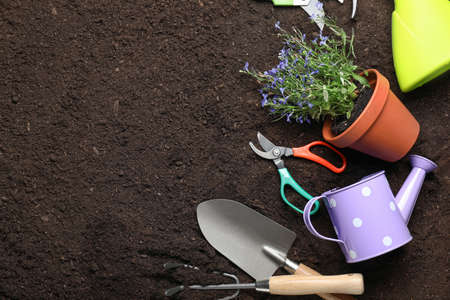Understanding the Importance of Peat-Free Compost
When we talk about gardening here in the UK, it’s hard to ignore the time-honoured tradition of using peat-based compost. However, as we’ve learned more about the impact our actions have on the environment, the conversation has shifted towards finding more sustainable solutions. Traditional peat compost, while popular for its ability to nurture young plants and improve soil structure, comes at a significant environmental cost. Peatlands are one of nature’s most effective carbon sinks, storing vast amounts of carbon that would otherwise be released into the atmosphere. Harvesting peat disrupts these delicate ecosystems, releasing greenhouse gases and destroying habitats for native wildlife.
With climate change becoming an ever-pressing concern, the importance of adopting sustainable gardening practices has grown across the UK. More home gardeners and professionals alike are turning their attention to peat-free alternatives. This shift not only helps protect our precious natural landscapes but also encourages a broader culture of environmental responsibility. Local nurseries and garden centres are uniquely positioned to lead this change, providing both education and practical options for those keen to do their bit for the planet. As we continue to value our green spaces, understanding why peat-free compost matters is the first step towards a more sustainable future for British gardens.
2. The Role of Local Nurseries and Garden Centres
Across the UK, local nurseries and garden centres are more than just places to buy plants and compost; they are cornerstones of community life and trusted sources of gardening wisdom. For many, a weekend trip to the garden centre is as much about seeking advice from knowledgeable staff as it is about picking up a bag of compost or a tray of bedding plants. These establishments are uniquely placed to influence buying habits and gardening practices, especially when it comes to promoting environmentally responsible choices like peat-free compost.
Unlike large chain stores, independent nurseries often have deep roots in their communities. Staffed by experienced gardeners—sometimes with decades under their belts—they offer practical tips tailored to local soil conditions and climate. Their recommendations carry weight, particularly among older generations who value first-hand experience and tried-and-tested methods over online trends.
Garden centres also act as informal educators. Through in-store displays, demonstration gardens, workshops, and seasonal events, they introduce customers to new products and sustainable practices in a hands-on manner. This face-to-face engagement is invaluable for demystifying peat-free alternatives, addressing concerns about plant health or yield, and giving real-life examples of successful results.
| Role | Impact on Gardeners |
|---|---|
| Providing Expert Advice | Helps customers understand the benefits and use of peat-free compost |
| Demonstrating Best Practices | Shows practical applications in real gardens on-site |
| Building Trust | Encourages long-term adoption through personal relationships |
| Hosting Community Events | Engages new and seasoned gardeners alike in learning opportunities |
From a long-term perspective, it’s clear that these local businesses play an essential part not only in supplying quality products but also in gently steering everyday gardeners towards choices that are better for Britain’s bogs and future generations. By sharing their experience and fostering community spirit, nurseries and garden centres become vital allies in the nationwide transition to peat-free gardening.

3. Educating Customers Through Practical Demonstrations
One of the most effective ways local nurseries and garden centres can promote peat-free compost is by running practical demonstrations and workshops. These hands-on sessions give customers the chance to see, touch, and even smell the difference between traditional peat-based products and their sustainable alternatives. For many British gardeners, gardening is all about tradition—so showing them first-hand that peat-free options can work just as well, if not better, is a powerful tool for change.
Hosting regular in-store demonstrations or short workshops is a great way to break down any barriers or misconceptions people may have about switching to peat-free compost. Staff can explain how these alternatives are produced, what materials are used (like coir, wood fibre, or green waste), and offer simple advice on how to get the best results. It’s also helpful to have real examples on display, such as healthy plants grown in peat-free compost, so customers can see the proof with their own eyes.
Informational sessions don’t have to be formal either. A friendly chat at the potting bench or a quick Q&A during a Saturday morning rush works wonders. Some centres even invite local gardening clubs or schools to take part in special events—getting the next generation involved is always a wise move. The key is to use straightforward language and draw on relatable experiences: talk about what works in your own garden, share tips from fellow customers, and encourage everyone to ask questions.
By making these learning opportunities regular fixtures—perhaps every month or tied into the start of each planting season—nurseries and garden centres can help build confidence in peat-free gardening. Over time, these efforts not only educate but also foster a real sense of community among local growers who want to do their bit for the environment.
4. Building Partnerships with British Suppliers
When it comes to promoting peat-free compost, fostering strong relationships with UK-based suppliers is a practical and sustainable approach for local nurseries and garden centres. By choosing to work closely with British compost producers, businesses can ensure not only the authenticity of their products but also support the wider economy and guarantee transparent sourcing. Let’s take a closer look at why these partnerships matter.
Ensuring Authenticity and Quality
One of the significant benefits of working with local suppliers is traceability. British compost producers are subject to rigorous standards and regulations, ensuring that their peat-free products truly live up to their claims. This means customers can trust that what they’re buying is genuinely sustainable, which in turn enhances the reputation of the nursery or garden centre.
Supporting the British Economy
Partnering with UK suppliers keeps money circulating within the community and supports local jobs. By purchasing from domestic producers, nurseries and garden centres contribute directly to regional economic growth, helping to sustain traditional industries and encourage innovation in green practices.
Providing Traceable and Sustainable Options
Traceability is becoming increasingly important for environmentally conscious consumers. Working with local compost makers allows for shorter supply chains, reducing transport emissions and enabling businesses to answer customers’ questions about product origins confidently.
Benefits Comparison Table
| Aspect | UK-Based Suppliers | Overseas Suppliers |
|---|---|---|
| Product Authenticity | High – regulated and transparent | Variable – may lack oversight |
| Support for Local Economy | Keeps money local; supports jobs | Profits often go abroad |
| Sustainability | Shorter supply chain; fewer emissions | Higher carbon footprint due to transport |
| Traceability | Easy to verify source & process | Difficult to trace back fully |
A Win-Win Approach for All Involved
The decision to partner with British compost producers isn’t just about ticking boxes for sustainability—it’s about building lasting relationships that benefit everyone from growers to gardeners. By championing home-grown solutions, nurseries and garden centres can confidently offer customers products that are good for gardens and even better for Britain’s future.
5. Encouraging Community Involvement and Loyalty
Fostering a genuine sense of community around peat-free compost isn’t just about putting up posters or running the occasional promotion. It’s about weaving together local gardening groups, schools, and allotment societies so that everyone feels invested in making the switch. One tried-and-true strategy is to host events—think hands-on workshops at your nursery or garden centre where people can see and feel the difference peat-free compost makes. Invite local gardening clubs and primary schools along; children love getting their hands dirty, and it’s a wonderful way for them to learn early on about sustainable gardening practices.
For those with allotments, consider organising seasonal open days or competitions—perhaps rewarding the best veg patch grown using only peat-free compost. This not only builds excitement but also allows plot holders to share their own stories and results, creating a ripple effect of success throughout the community.
Loyalty Schemes Tailored to Local Needs
A well-thought-out loyalty scheme can work wonders in encouraging regular use of peat-free products. Offer stamps or points each time customers purchase peat-free compost, redeemable for discounts on plants, seeds, or even exclusive event access. For schools and gardening groups, special group discounts or starter kits can help get everyone involved from the outset, ensuring that no one is left behind due to cost.
Sharing Success Stories to Inspire Others
Don’t underestimate the power of a good story. Put up displays in your shop featuring local gardeners who’ve seen great results with peat-free compost—or better yet, invite them to speak at events or write a short testimonial for your newsletter. Allotment societies are particularly good at this sort of thing; members love swapping tips and tales over a cuppa. By celebrating these small victories publicly, you create positive peer pressure and show others what’s possible when they make the switch.
Building Lasting Relationships
The key is consistency and genuine engagement. Regular communication through newsletters, social media updates, and face-to-face chats keeps peat-free compost top of mind. The more you involve your local community in these initiatives—and truly listen to their feedback—the stronger their loyalty will become, turning occasional customers into lifelong advocates for both your business and sustainable gardening.
6. Navigating Challenges and Changing Long-Standing Habits
If you’ve spent years tending your garden with tried-and-tested methods, the idea of switching to peat-free compost can feel a bit daunting. Many traditional gardeners are understandably hesitant—after all, we get set in our ways, and there’s comfort in what we know. But just as gardening itself is about growth and adapting to the seasons, so too must our practices evolve for the good of our cherished green spaces.
Understanding Hesitation Among Traditional Gardeners
Let’s be honest: peat has been a staple for generations, prized for its reliability and consistency. The switch to peat-free compost brings questions—Will my plants thrive? Will the soil stay moist enough? Is it worth the effort? These concerns are valid, but they’re not insurmountable. Local nurseries and garden centres play a vital role here, offering guidance based on firsthand experience with both products and local conditions.
Practical Steps for a Smooth Transition
Start by introducing peat-free compost gradually—perhaps use it for potting up annuals or adding to new beds rather than overhauling everything at once. Listen to advice from staff at your local nursery; many now run workshops or offer leaflets outlining best practices for watering, feeding, and mixing composts. Don’t be afraid to ask questions or share your own experiences with others—it’s often in these conversations that you’ll pick up tips you won’t find on a bag label.
Embracing Long-Term Benefits
While the adjustment period may take a season or two, the long-term benefits are well worth it. Peat-free compost helps protect precious habitats and supports more sustainable gardening across Britain. Over time, you’ll notice improved soil structure, healthier biodiversity in your patch, and perhaps even savings as peat alternatives become more widely available and competitively priced. Most importantly, you’ll be doing your bit to preserve the countryside for future generations—a legacy any keen gardener can be proud of.
7. Celebrating Success and Sharing Local Stories
One of the most powerful ways to inspire change within our communities is by celebrating the achievements of those who have already taken steps towards a more sustainable future. Across Britain, countless nurseries, garden centres, and individual gardeners have embraced peat-free compost, and their stories are proof that making the switch is both possible and rewarding.
Real-Life Examples from British Gardeners
Take, for instance, Mrs. Edith Brown from Kent, who has been tending her allotment for over thirty years. She recalls, “I was hesitant at first, thinking my tomatoes wouldn’t thrive without peat. But after a season with peat-free compost from my local nursery, I saw no difference in yield—and I felt better knowing I was doing my bit for the environment.”
Business Owners Leading the Way
It’s not just home gardeners making a difference; local business owners are stepping up too. James Turner, owner of Greenfields Garden Centre in Yorkshire, shares his experience: “We made the decision to go completely peat-free last spring. Our customers were curious at first, but we held workshops and offered advice. Now, many tell us they actually prefer the new range—it’s become a real talking point in our community.”
Fostering Community Spirit
These success stories reinforce the sense of shared purpose that comes with going peat-free. Garden clubs are swapping tips on alternative composts, while nurseries proudly display ‘peat-free’ signs as badges of honour. As word spreads and positive results are seen in gardens across the country, more people feel encouraged to join in.
By highlighting these local stories and testimonials, we remind ourselves that every small action counts—and when we work together as a community, we can achieve lasting change for our countryside and future generations.


